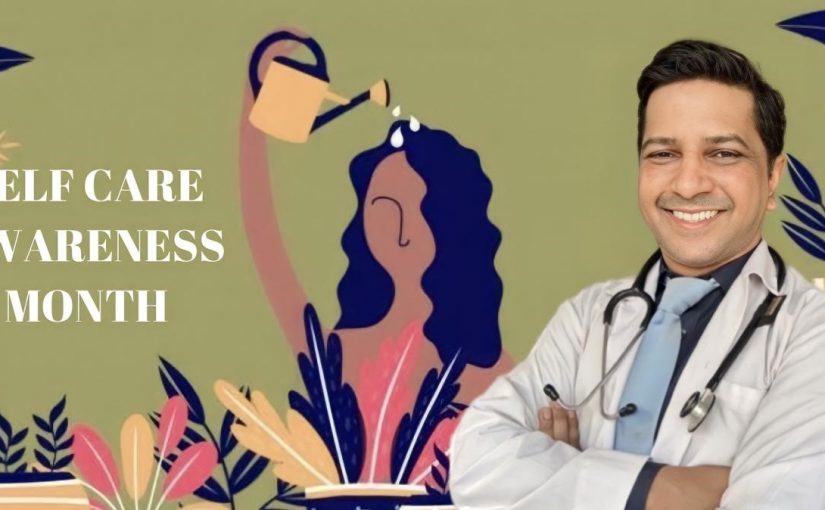The World Health Organisation has declared the month starting from June 24 as Self Care Awareness Month. It will end on July 24 which is observed as Self Care Day. We catch up with DR AMIT DIAS from the Department of Preventive Medicine, Goa Medical College, to learn more about self-care through this enriching interview. “Self-are us for LIFE,” says Dr Dias.
Q: Doctor what exactly is ‘SELF CARE’?
A: ‘SELF CARE’ is the practice of taking an active role in protecting one’s wellbeing and happiness. Individuals, families and communities are encouraged to work towards promoting and maintaining their health, preventing disease, and coping with illness and disability, with or without the help of the health care provider. It is about taking care of yourself emotionally, mentally, physically as well as spiritually to ensure that you are at peace and in total alignment with yourself.
A lot of things that happen outside the hospital and clinics affect our health and promote well-being… this month is to stress YOUR role in promoting health in your family, community and in yourself. We saw how this helped during the COVID pandemic.
Q: Why do we observe Self-Care Day on July 24?
A: This is interesting. It is observed 24/7 as a reminder of the fact that we need to practice SELF CARE 24X7- 24 hours a day, seven days a week.
Q: What does one do in self-care?
A: There are a lot of options – one can use digital technology for monitoring, getting a diagnosis, taking medicine rationally, exercising, maintaining hygiene, getting adequate sleep, following a healthy diet, avoiding addictions, learning how to provide palliative care, providing care to those with a disability, etc.
For example, with COVID people could do a test on a rapid kit at home and take care of themselves. Similarly, we can monitor our blood sugar on a glucometer in the case of diabetes, or check our blood pressure using a digital BP apparatus. Remember, SELF-CARE does not replace the existing health system, it only enhances it.
Self-care interventions can empower individuals and communities to manage their health and wellbeing.
Q: How does practicing self-care help?
A: It can bridge the gap in health care and reduce the delay. For example, if a mother gives her infant oral rehydration salts in case of diarrhea, she can prevent the child from going into dehydration. It is estimated that 4.3 billion people have inadequate access to essential healthcare services. 1 in 5 individuals live in regions with humanitarian crisis with challenge health care delivery.
Q: Any message for our readers?
A: SELF-CARE IS NOT THE SAME AS BEING SELFISH. People are encouraged to be active agents in promoting and preserving their health.
If you attend to yourself, you bring about the best in yourself and this in turn will reflect in your work, relationships and all other commitments. Do practice self-care 24 X 7 and encourage others to do it as well. Together we can build a healthy society that cares for itself. Promoting self-care can strengthen primary health care and help us achieve our goals. Self-care is for LIFE… make your SELF-CARE promise today !
(Dr Amit Dias, MD. He is faculty at the GMC and has been involved in several public health initiatives to promote health and well-being.)
